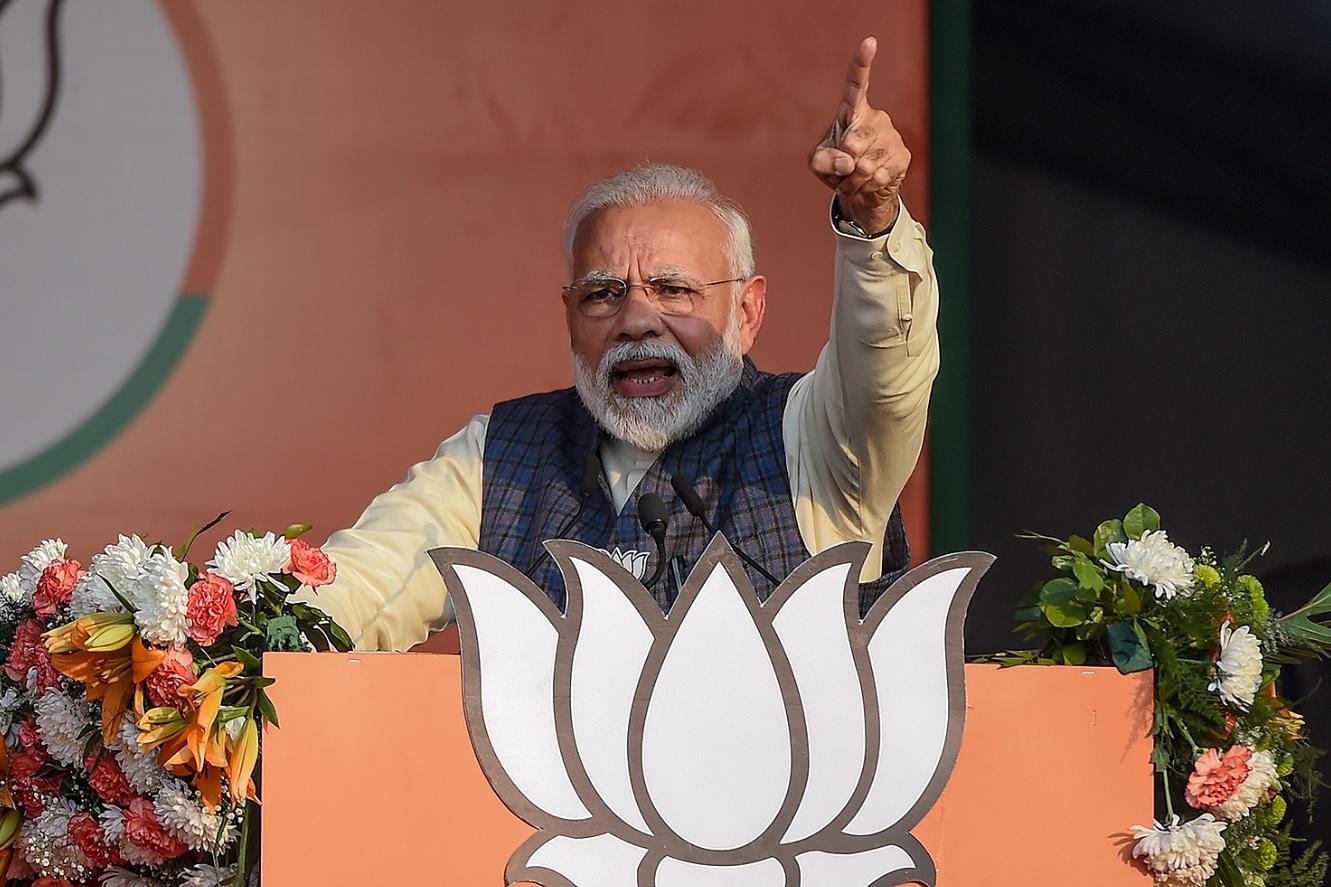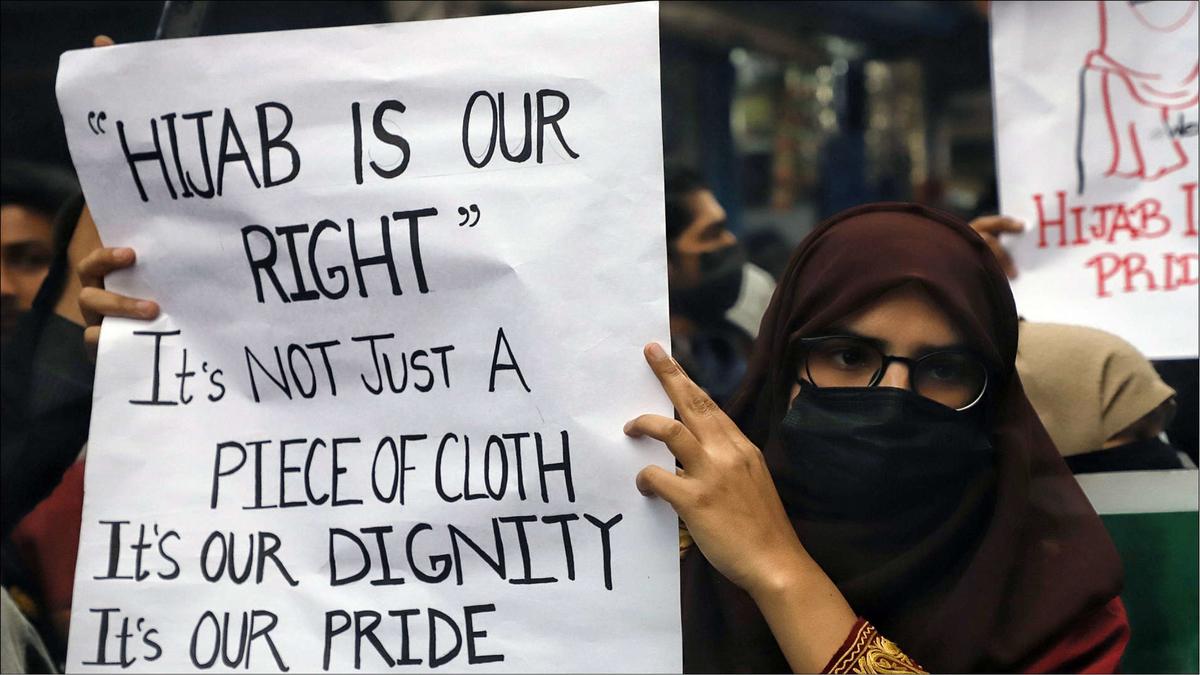Islamophobia in India: a government policy or non-stop whisper of history? Discrimination against 213 million Indian Muslims
Escalation of Islamophobia has once again made the headlines in India after the government officials of the country used hate speech against Prophet Muhammad, the central figure and founder of the world religion of Islam.
The country’s authorities have faced severe backlash from major Muslim countries across the world after the ruling Bharatiya Janata Party’s spokesperson Nubur Sharma was said to insult the prophet and his wife Aisha in a TV debate last week. His hatred-based words were followed by a now-deleted tweet of the same rhetoric posted by Sharma’s party colleague Nuveen Kumar Jindal.
Although the party’s leader, India’s Prime Minister Narendra Modi, ordered to expel Sharma and Jindal from the party in response to the diplomatic storm caused by their insults of the Islamic world’s supreme figure, it failed to ease down the uproar in the Muslim countries.

India’s ambassadors to Kuwait and Qatar were presented official notes of protest on June 5, while Pakistan’s foreign ministry condemned the “highly derogatory remarks” of the two men and the BJP’s response to their disrespect of the Islamic values.
“These totally unacceptable remarks have not only deeply hurt the sentiments of the people of Pakistan but of billions of Muslims around the world,” the foreign ministry said in a statement.
“BJP’s attempted clarification and belated and perfunctory disciplinary action against these individuals cannot assuage the pain and anguish they have caused to the Muslim world,” the ministry said.
Authorities of Qatar even demanded a “public apology” from the Indian government, despite Modi’s party rejected the comments of its members as not “reflecting the government’s views”. Iran, Saudi Arabia and other Gulf countries have also denounced the abusive remarks of the Indian officials against Prophet Muhammad. Saudi authorities called it “insulting” and called for “respect for beliefs and religions”.
Protests against India took also the social media by storm, where Arab users called for boycotting the Indian products and accusing Delhi of resembling France and China for its policy that promotes Islamophobia.
What does put weight behind Islamophobia in India?
India has one of the world’s largest Muslim population. According to various sources, 15.5 percent or 213 million of the country’s population of almost 1.4 billion are Muslims, making India home for nearly 11 per cent of the world’s Muslim population.
Researchers, activists, and former top bureaucrats have repeatedly reported the continuous rise in Islamophobia in India over the recent years. The very first roots of the anti-Muslim sentiments in the country are thought to lie in various aspects of Indian history, including the resentment towards the Islamic conquest of India during the Middle Ages, divisive policies established by the colonial government during the period of British rule, and the partition of Indian subcontinent into a Muslim-majority Pakistan and an Indian state with a Muslim population.
In the meantime, many are convinced the traces of the current strong anti-Muslim sentiments in India should be sought in the policy pursued by the country’s rulers.
Before rising to power in 2014, India’s incumbent PM Modi was scandalously accused of mass sectarian murder of at least 2,000 Muslims in the Gujarat province of India in 2002 riots, at a time when he served as the province’s chief minister. His attitude towards Muslims remained the same even after coming to power as the country’s Prime Minister, according to many researchers and analysts.
In March 2022, the country’s authorities urged the UN to replace the term “Islamophobia” with “religiophobia”, asserting that the discrimination against the religious belief does not only concern the Muslims. In April of the same year, Delhi announced that it would ban wearing Hijab, a headwear worn by the Muslim women, within the country’s territory. Islamophobia in India has also spilled over into the cinema sector. The Indian film “Beast” was banned in Kuwait and Qatar in April 2022 due to the film's reportedly stereotyped depiction of Muslims as terrorists and a few dialogues against Muslim country Pakistan.

The calls for “mobilization” against Muslims in India are said to take place under the guidance of the country’s hardline nationalist government. In April 2022, head of Ghaziabad’s Dasna Devi temple Yati Narsinghanand called for preventing Muslims from coming to power in India as he claimed it would lead to “killing of 40 per cent of Hindus” in the country. He even called on the Hindus to take arms for ensuring their security against threats that may come from the Muslim population.
On the same year, a Muslim youngster was said to have been killed by the state police in the Uttar Pradesh state. The state is known for numerous reports of Muslims and lower-caste men being picked up on the streets and killed with alleged impunity by police and later introduced as a “suicide” or deaths from a fatal shoot of the police in what were claimed to be “self-defence” measures. The Guardian reported as a result of examination of six cases of the so-called deaths in custody and police shootings of suspects that from 2018 onwards, those orchestrating the murders are the same, including the Uttar Pradesh police, under the rule of the state’s chief minister, Yogi Adityanath, and his Bharatiya Janata party (BJP) government.
The alarming attitude towards Muslims in India pushes many researches to zero in on the issue for scaling up the real background of the Islamophobia.
Navaid Hamid, president of the India Muslim Majlis-e-Mushawarat, an umbrella organization of political and social Muslim organizations, is convinced that minorities including Muslims and Christians in India are being made second-class citizens under the incumbent government.
“The escalation of hate violence against the minority communities, particularly Muslims, in the last few years and months across several states – Assam, Delhi, Gujarat, Haryana, Karnataka, Madhya Pradesh, Uttar Pradesh, and Uttarakhand, all states where the Bharatiya Janata Party (BJP) is in power, barring Delhi [where the union government controls the police] – has acquired a frightening new dimension,” he told the Anadolu Agency.
International reaction to India’s Islamophobia
Although slow, the international community has been condemning the separation against the Muslims in India. US Secretary of State Antony Blinken voiced his concerns over the “rising attacks on people and places of worship” in India on June 3. The Organization of Islamic Countries has also slammed the growing hate crimes and violent sentiments against Muslims in the country. Turkish President Recep Tayyip Erdogan chided the Indian authorities for what he said to be “massacres of Muslim by Hindus”. He called India a country where “massacres were widespread”.
"God created everyone equally"
Ethnicity or religious-based discrimination or racism is not accepted in any religion in the world. India’s mainstream Buddhism religious belief claims no fundamental differences between any humans. Islam’s holy book of Quran advocates equality between all and says that the only good deeds may raise the status of one human over another. The same idea is common in other major heavenly religions, including Christianity and Judaism. Notwithstanding the composition of the population, be it monoethnic or multiethnic, the coexistence should be key for granting a better future for all residents and citizens of any country free of hatred, racism, discrimination, and enmity.
“There is no superiority of an Arab over a non-Arab, or of a non-Arab over an Arab, and no superiority of a white person over a black person or of a black person over a white person, except on the basis of personal piety and righteousness,” Prophet Muhammad has once said to his followers in Mecca.
Can India fairly evaluate the decades-long and ongoing reactions to its internal developments that periodically undermine the very nature of the creation of mankind and establish better grounds for members of all religions to be equal parts of its multiethnic society? Or it will remain to be the same?
Mushvig Mehdiyev








